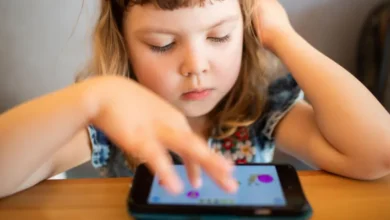Social Media Habits Disrupt Parent-Child Bonding — Even When Parents Are Offline

Even when parents aren’t looking at their screens, their social media habits may still affect how they engage with their children.
New research presented at the Digital Media and Developing Minds International Scientific Congress reveals that mothers who spend more time on social media talk significantly less to their children during playtime, even when their phones are nowhere in sight.
Key Findings
- High social media use (169 minutes/day on average) correlated with 29% less verbal interaction during play compared to low users (21 minutes/day).
- This reduction in communication happened even when phones weren’t in use, suggesting the effects linger mentally.
-
Other phone uses, like checking the weather or email, didn’t have the same impact.
“Even when they’re physically present, parents’ minds may still be absorbed by what they’ve seen on social media,” said lead author Liz Robinson, a doctoral student at the University of Alabama.
Children pick up on their parents’ attention. “When our gaze is constantly going toward a phone, we’re teaching our children what’s important,” Robinson noted.
Why it matters
Language exposure is crucial from birth through age 18 for brain and communication development. Quality interactions during play also help children regulate emotions, develop focus, and build social skills.
What parents can do
- Set aside screen-free time with undivided attention — even 15 minutes makes a difference.
- Be aware of how social media affects your thoughts and presence.
-
Reduce how often you check apps and how long you stay on them.
While the study is correlational and not yet peer-reviewed, experts say the implications are clear: children need parents who are mentally as well as physically present.
Conclusion
Social media may be shaping our parenting more than we realize, not just in what we do with our devices, but in how we show up emotionally and conversationally for our children.





